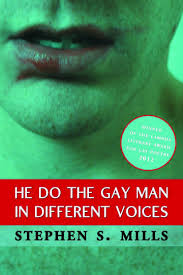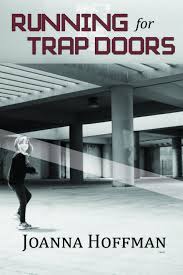Into Poetry, or How To Learn To Stop Worrying and Love the Verse
by John “Mac” Freeman
I could see the fear in their eyes when I walked in the room. Dr. Saye, a family friend who I knew through the local theatre, had invited me into give a guest lecture to two of his high school classes. These students could not have been less thrilled because I was there to talk about poetry.
I don’t blame them: poetry can be a drag. But I didn’t roll in there as another person who was going to gush about how deep Dickinson was or how awesome William Blake was. Instead, I talked to them about the poets that I like, people who are still alive who have things to say about the way the world is today. I talked about spoken-word poetry and shared clips of Taylor Mali and Sarah Kay. I read poems from Todd Colby and Penny Arcade. I talked about why poems were the best ways of expressing some thoughts and that they begged for bad language, NC-17 subject matter, and honest emotions. And by the end, I had most of them smiling and laughing. It may not have made them run out to read anyone’s collected works, but at least they had a moment where they knew poetry didn’t have to be boring.
I think that one of the major things that turns people off of poetry is that they are introduced to it in a way that makes it both difficult and irrelevant to their lives. My American Literature class covered Anne Bradstreet, Walt Whitman, Emily Dickinson, and classic Native American poetry. British Literature went even further back, starting with Beowulf, Sir Gawain and the Green Knight, and every single one of The Canterbury Tales. While some people continue to find these poems meaningful, others just look at them as something to endure so that they can get through it. I think the over-emphasis on classic literature in school turns a lot of people off from reading in general and poetry in particular, but that’s another argument for another day.
Poetry is especially susceptible to this, I believe, because most people are rarely exposed to poetry once they leave school. Most smaller libraries have pitifully small and spotty poetry collections that mainly cover classics. For LGBT folks (especially from my Southern perspective), it can be hard to find representation on the shelves. Here at GLBT Reviews, we review a fair amount of poetry. I actually got started reviewing poetry here because I felt sorry for the poetry collections on the review list because I felt like nobody else would want to review them. Two years later, I’ve become our de facto poetry reviewer.
If you want to read some LGBT poetry, I recommend starting with things that have a conversational tone and stuff that will engage you without forcing you to work for the meaning. Whether for the first time this year or the first time since school, here are some good places to start:
 He Do the Gay Man in Different Voices (http://www.glbtrt.ala.org/reviews/archives/1082)by Stephen Mills. This collection won the 2012 Lambda Literary Prize for Gay Poetry. I have to talk about it from memory because I lent my copy to someone who promptly moved out of state for graduate school. I remember the poetry contains both a humor and a deep emotion that makes this collection feel more like an intimate memoir than a collection of poetry. The conversational tone helps the narratives come alive, especially in the third section where Mills explores his pen pal relationship with convicted felon Nickolay Petrov. I’ve loved this collection since I read it. When my boyfriend asked me why, I said all of this and ended with “And it has a really sweet poem about fisting.” He was incredulous. So I read it to him. And at the end, he said “Wow…that was a really sweet poem about fisting.”
He Do the Gay Man in Different Voices (http://www.glbtrt.ala.org/reviews/archives/1082)by Stephen Mills. This collection won the 2012 Lambda Literary Prize for Gay Poetry. I have to talk about it from memory because I lent my copy to someone who promptly moved out of state for graduate school. I remember the poetry contains both a humor and a deep emotion that makes this collection feel more like an intimate memoir than a collection of poetry. The conversational tone helps the narratives come alive, especially in the third section where Mills explores his pen pal relationship with convicted felon Nickolay Petrov. I’ve loved this collection since I read it. When my boyfriend asked me why, I said all of this and ended with “And it has a really sweet poem about fisting.” He was incredulous. So I read it to him. And at the end, he said “Wow…that was a really sweet poem about fisting.”
 Running for Trap Doors (http://www.glbtrt.ala.org/reviews/archives/1339) by Joanna Hoffman. Part of what makes a collection great is the number of times that you reach for a pen to underline a section so that you can find it again. Running for Trap Doors has tons of these moments, and thumbing back through the collection shows me tons of lines (and starred poems) that I know that I can’t wait to read again. Hoffman has a command of language and such a keen ear for a turn of phrase that this collection soars. Further, Hoffman runs the full range of emotions as she talks about love won and lost and modern battles fought to keep your sanity and your footing on solid ground. At times both hilarious and deeply moving, this collection is a down-to-earth emotional workout.
Running for Trap Doors (http://www.glbtrt.ala.org/reviews/archives/1339) by Joanna Hoffman. Part of what makes a collection great is the number of times that you reach for a pen to underline a section so that you can find it again. Running for Trap Doors has tons of these moments, and thumbing back through the collection shows me tons of lines (and starred poems) that I know that I can’t wait to read again. Hoffman has a command of language and such a keen ear for a turn of phrase that this collection soars. Further, Hoffman runs the full range of emotions as she talks about love won and lost and modern battles fought to keep your sanity and your footing on solid ground. At times both hilarious and deeply moving, this collection is a down-to-earth emotional workout.
 Shine (http://www.glbtrt.ala.org/reviews/archives/1217) by Donnelle McGee. Shine isn’t like the other two collections I’ve suggested. Instead of providing short poems that stand alone and talk about a range of issues, Shine is a verse narrative that tells the story of a murder through 79 interlocking poems. These short poems constantly shift viewpoints, and the reader is forced to piece together what happened to Bray on the night that he was supposedly leaving the hustling profession for good. This collection stood out to me because it offers a way into poetry for those who prefer mysteries. It’s both gripping and atmospheric, and it left me wanting McGee to write a whole series of these.
Shine (http://www.glbtrt.ala.org/reviews/archives/1217) by Donnelle McGee. Shine isn’t like the other two collections I’ve suggested. Instead of providing short poems that stand alone and talk about a range of issues, Shine is a verse narrative that tells the story of a murder through 79 interlocking poems. These short poems constantly shift viewpoints, and the reader is forced to piece together what happened to Bray on the night that he was supposedly leaving the hustling profession for good. This collection stood out to me because it offers a way into poetry for those who prefer mysteries. It’s both gripping and atmospheric, and it left me wanting McGee to write a whole series of these.